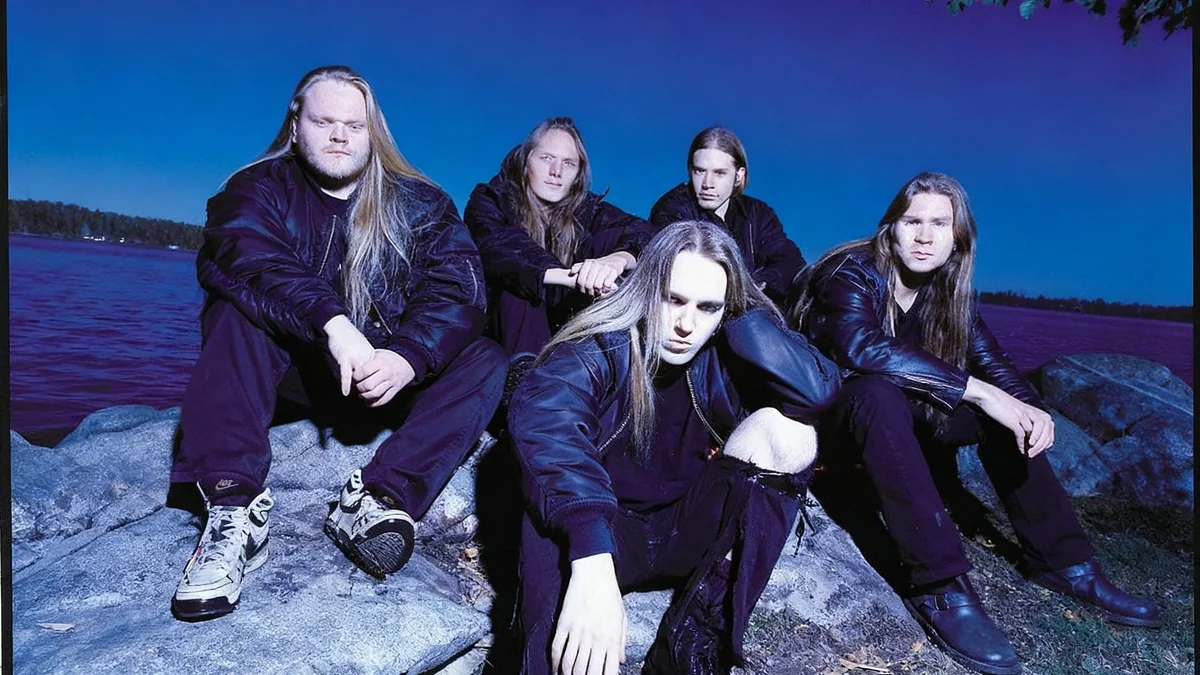Bruce Dickinson, the renowned vocalist for Iron Maiden, has revealed that a specific Paul Di'Anno-era song was pivotal in his decision to join the iconic band. The track, which he first heard in a live setting, deeply resonated with him and reminded him of an earlier musical discovery. This moment solidified his desire to become part of the group, which he described as a significant musical evolution.
Key Takeaways
- Bruce Dickinson was inspired to join Iron Maiden by a Paul Di'Anno song.
- The song evoked a similar feeling to discovering Deep Purple at age 15.
- Dickinson saw Iron Maiden as an updated version of classic heavy rock.
- He observed the band's powerful live performance before joining.
The Pivotal Song and Initial Impression
Dickinson recounted attending an Iron Maiden concert at the Ruskin Arms in East London in 1979. He was then the frontman for Samson. During the performance, one particular song stood out. This track, sung by Paul Di'Anno, left a lasting impression on Dickinson.
He described the experience as transformative. The energy and musicality of the song were unlike anything he had heard recently. It felt both familiar and fresh, capturing his attention immediately.
"I remember watching them and thinking, 'Fucking hell, this is something else.'"
This initial reaction was a strong indicator of the band's potential. Dickinson recognized a unique quality in their music.
Did You Know?
- Paul Di'Anno was Iron Maiden's original vocalist, featured on their first two albums.
- Bruce Dickinson joined Iron Maiden in 1981, replacing Di'Anno.
- The Ruskin Arms was a famous pub in East London, known for hosting early Iron Maiden gigs.
Connecting with Classic Rock Roots
The song that influenced Dickinson so profoundly was "Phantom of the Opera." He explained that this track connected him to his own musical history. It brought back memories of his youth and his early passion for heavy rock music.
Dickinson specifically compared the feeling to when he first discovered Deep Purple. He was 15 years old at the time and found their music revolutionary. "Phantom of the Opera" provided a similar sense of excitement and discovery, but with a modern twist.
"It reminded me of discovering Deep Purple when I was 15 years old, except updated," Dickinson stated. This comparison highlights the track's impact, suggesting it offered a fresh take on the genre he loved.
The Evolution of Heavy Metal
For Dickinson, Iron Maiden represented an evolution. They were taking the essence of bands like Deep Purple and making it relevant for a new era. This was a key factor in his admiration for their sound.
He saw the band as pushing boundaries while respecting the foundations of heavy rock. This blend of innovation and tradition was very appealing to him as a musician.
Background on Deep Purple
Deep Purple is an English rock band formed in Hertford in 1968. They are pioneers of hard rock and heavy metal, alongside Led Zeppelin and Black Sabbath. Their influence on the rock music scene of the 1970s was immense, known for their powerful riffs and dynamic live performances.
The Live Performance and Band Dynamics
Beyond the specific song, Dickinson was also impressed by Iron Maiden's overall live presence. He observed their performance with a critical eye, noticing the energy and skill of each member. This was crucial for him, as he understood the importance of a strong stage show.
He noted the band's ability to engage the audience and deliver a powerful musical experience. This professional approach, even in smaller venues, spoke volumes about their dedication and talent.
The atmosphere at the Ruskin Arms was electric, a common trait for early Iron Maiden shows. These performances helped build their reputation and fan base before they achieved global fame.
- Energy: The band played with intense vigor.
- Skill: Each musician showcased high levels of technical ability.
- Audience Engagement: The crowd responded enthusiastically.
From Admiration to Audition
Dickinson's admiration for Iron Maiden grew after this experience. The impact of "Phantom of the Opera" and the band's live show contributed to his decision to seek an opportunity with them. When the chance arose for him to audition, he was ready.
His eventual joining of Iron Maiden in 1981 marked a new chapter for the band. He replaced Paul Di'Anno, who had sung on their first two albums, Iron Maiden (1980) and Killers (1981).
Dickinson's powerful vocal range and charismatic stage presence further propelled Iron Maiden to international stardom. Albums like The Number of the Beast, released in 1982, became classics and defined a generation of heavy metal music.
This story underscores how a single song can profoundly influence a musician's career path. For Bruce Dickinson, "Phantom of the Opera" was more than just a track; it was an invitation to a new musical destiny.
Long-Term Impact on Iron Maiden
The arrival of Bruce Dickinson is widely considered a turning point for Iron Maiden. His distinct voice and theatrical flair helped shape the band's signature sound. This sound became a key element in the New Wave of British Heavy Metal movement.
Over four decades, Iron Maiden has sold over 100 million albums worldwide. They have performed more than 2,000 live shows. Their enduring success is a testament to the strong foundations laid in their early years, and the crucial role of vocalists like Di'Anno and Dickinson.
The band continues to tour and release new music, maintaining a dedicated global fanbase. Their influence on heavy metal and rock music remains significant.




